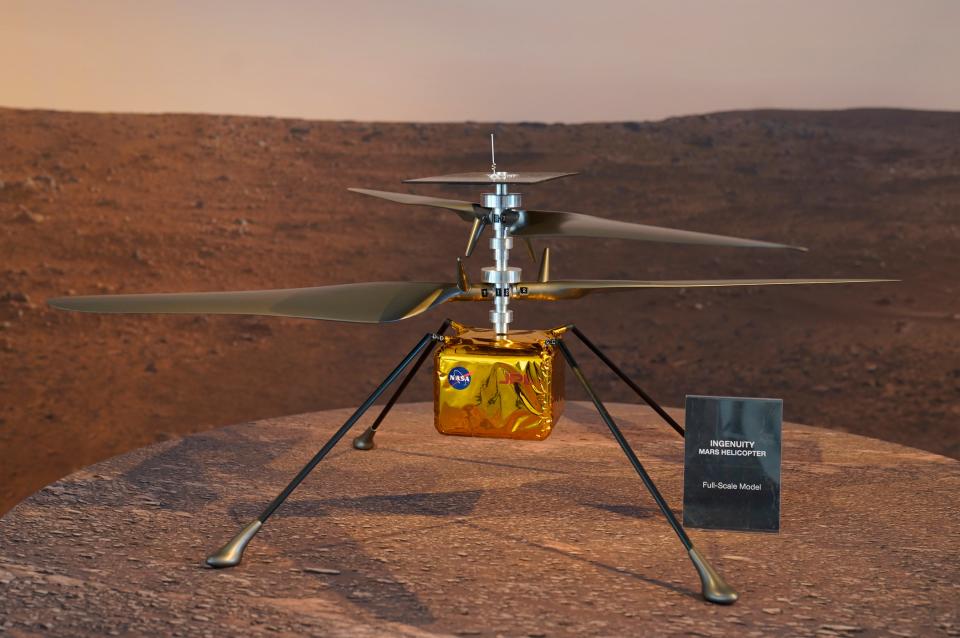Nasa’s Mars helicopter Ingenuity ‘passes’ its initial test and will now be used to help with science, space agency says

Nasa’s Mars helicopter Ingenuity has “graduated” out of its initial testing and will now be used to try and aid with scientific research, the space agency said.
Instead of being abandoned at the end of the “30 days of Ingenuity” it was planned to last, the mission will now change into an “oeprations demonstration”, to see how it might help do science work.
Project manager MiMi Aung said the change of plan was like “Ingenuity is graduating” as it goes on to conduct more ambitious missions.
That will help show how a rotorcraft like Ingenuity can be used to support science missions. It will be able to gather detailed data from above about the way the land is shaped, for instance.
It will do so in collaboration with Perseverance, the rover it travelled to the Martian surface with and which is currently surveying the red planet from the ground.
Its next flight, its fourth in total, will see it fly 130 meters away from its current spot, and then back to the area known as “Wright Brothers Field”, the first airfield on another planet. During that long flight, it will gather mapping information that will be sent back to Earth and used to find Ingenuity another new home – and then it will use its fifth flight to travel to that airfield.
Nasa had initially suggested that the helicopter would go through its initial 30-day phase and then be abandoned, having hopefully proven its technical use. But the space agency has a habit of extending its mission beyond their initial expectations: the Hubble Space Telescope’s observations were planned to last 15 years, for instance, but it is now more than 30 years old and could last for decades more.
It also said that the initial flights would only constitute a technical demonstration, intended to prove the use of its technology in future missions. But it will now attempt to do science work with Ingenuity itself, exploring how it might be able to help its accompanying rover, Perseverance.
In all, the mission could last two months, since the technological demo will be added to the operations one.
Engineers did however caution that initial work had been done with an expected mission time of 30 Earth days, so that any extra time is a bonus and the helicopter could run into issues.
Read More
Saturday Night Live cast will not be forced to appear with Elon Musk, report says
SpaceX launch - live: Pivotal test of Starship SN15 scrubbed
